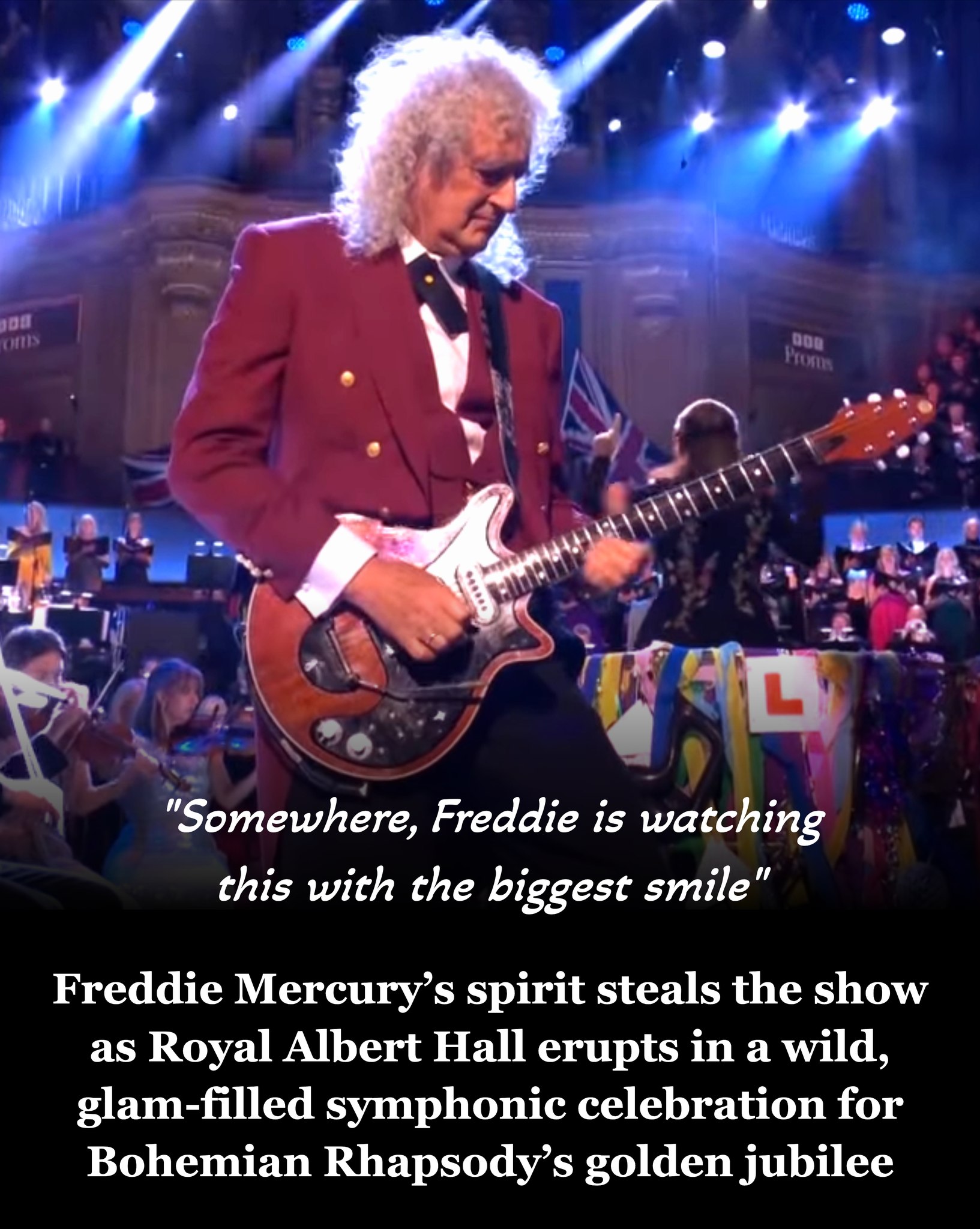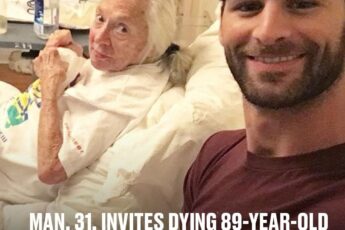Fifty years on, “Bohemian Rhapsody” still crackles like lightning — and on 13 September 2025, the BBC Proms somehow managed to bottle that storm. In a once-in-a-generation event, the Royal Albert Hall was transformed into something extraordinary: not just a concert venue, but a cathedral of glam rock. With a full orchestra, massed choirs, and actual rock royalty on stage, the evening didn’t just pay tribute to Queen’s magnum opus — it supercharged it. This wasn’t a nostalgic rehash. This was living, breathing history, and every note proved why “Bohemian Rhapsody” remains one of the most daring and beloved songs ever written.
Brian May and Roger Taylor returned not just as guests but as reigning kings. May’s guitar tone — instantly recognizable, warm and weeping like a human voice — sliced through the layered operatic textures. Taylor, ever the thunder behind the band, brought the kind of rhythmic power that reminds you why Queen never needed anyone else behind the kit. As the operatic whispers swelled and the guitars kicked in, it became clear: this wasn’t a cover; this was a coronation.
The reviews echoed the audience’s joy. The Financial Times called it the “most fun Last Night for years,” while The Telegraph gave it a confident 4 out of 5 stars, stating that May and Taylor “reign supreme.” And they weren’t wrong. The performance struck that rare balance between reverence and reinvention — it celebrated the original while letting it breathe in a new way. The arrangement, by Stuart Morley, was smart, playful, and gloriously oversized, threading the song’s rock edge into the velvet of symphonic sound.
Leading the charge vocally was tenor Sam Oladeinde, who brought flair and clarity to the role of narrator, while soprano Louise Alder shone brightly in the high operatic passages, floating above the choirs with a voice as glittering as the chandeliers above. Under conductor Elim Chan’s dynamic baton, the BBC Symphony Orchestra, BBC Symphony Chorus, BBC Singers, and the National Youth Choir detonated those stacked harmonies with precision and power. It was the kind of wall of sound that fills your chest and stirs your spine — a sound too big for headphones, too alive for streaming.
And yes — Freddie. His silhouette haunted every harmony, every shift from piano ballad to operatic madness to rock fury. You could almost hear his grin during the “Galileo” volleys, feel his mischievous wink in every exaggerated tempo change. Even though he wasn’t physically there, his spirit saturated the hall, threaded into every note and every ripple of laughter and awe. Brian May, ever candid, reflected afterward, “I missed a couple of things,” but the ovation said what he didn’t need to: it was magnificent. The crowd didn’t care about perfection. They cared about the moment — and that moment was magic.
What made the night even more remarkable was its reach. Teenagers with glowsticks stood next to seasoned Prommers in formalwear. Opera lovers and rock fans shared smiles, nodding along to the same rhythm. It was a rare communion — a shared cultural moment that transcended age, genre, and expectation. In an age of hyper-personalized algorithms, the song still united people in a very real, very loud, and very human way.
Because “Bohemian Rhapsody” isn’t just a song — it’s a rite of passage, a pop-cultural miracle that shouldn’t work but somehow works perfectly. Fifty years on, it’s proof that great art doesn’t fade — we just find new ways to experience it. It’s melodrama and melancholy, poetry and parody, opera and rock, and somehow, it’s still as fresh and fun as the day it was born.
So raise a glass, a glowstick, or a battered air-guitar. Whether you first heard it in your parent’s car, at a karaoke night, or in a dark cinema during Wayne’s World, this Proms performance reminded us all why Queen’s masterpiece continues to roar like a comet. Freddie forever — the show goes on, because millions still sing with him. And Loud.






